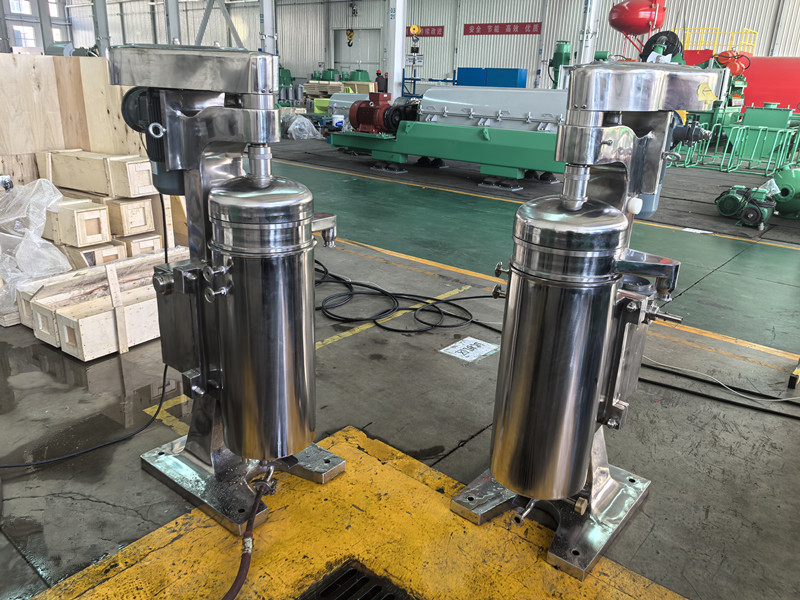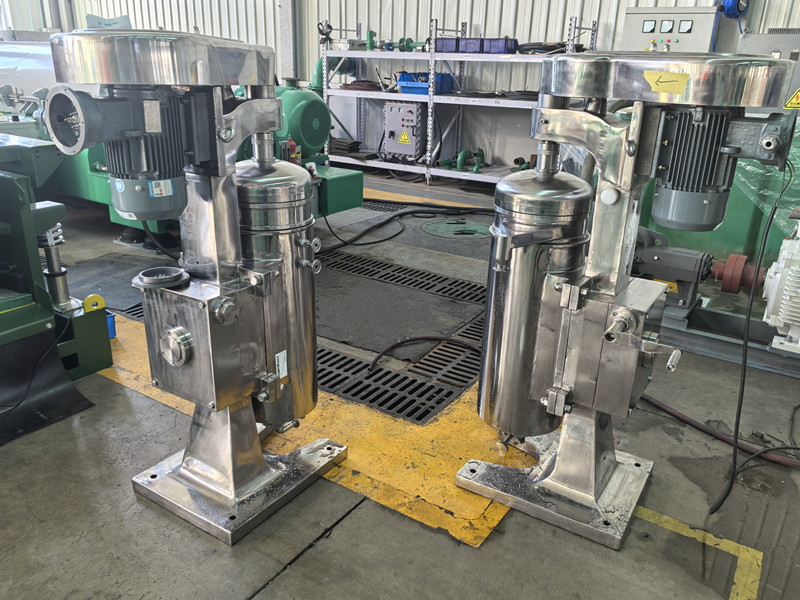Fermentation Broth Tubular Centrifuge before Shipment to Overseas Client
This week, GN Separation is acting on the factory testing for two units of high-speed tubular centrifuges destined for an overseas client's facility. These centrifuges will be used for the separation of fermentation broths.
The tubular centrifuges in question, model GNGQ150, are engineered to operate at an impressive rotational speed of 14,000 RPM, generating a separation factor of up to 15,000G. This performance allows for highly efficient solid-liquid separation, a crucial process in the production of various biopharmaceuticals, enzymes, and other biological products derived from fermentation processes.

Understanding the Working Principle of Tubular Centrifuges
Tubular centrifuges operate on the fundamental principle of centrifugal force, which separates particles based on their density and size. When a mixture is fed into the rotating tube of the centrifuge, the centrifugal force acting on the particles causes them to move radially outwards. Heavier particles, typically solids, are forced against the wall of the tube while lighter particles, such as liquids, remain closer to the center. This differential movement results in the separation of the components, with the clarified liquid exiting from the outlet and solids being trapped inside the bowl for subsequent disassembly and cleaning
Applications of High-Speed Tubular Centrifuges
The versatility and efficiency of high-speed tubular centrifuges like the GNGQ150 make them indispensable in a wide array of industries, particularly those involved in biotechnological processes. Here are some key application areas where these centrifuges excel:
1. Biopharmaceutical Production: In the production of vaccines, monoclonal antibodies, recombinant proteins, and other therapeutic agents derived from microbial or mammalian cell cultures, high-speed tubular centrifuges are used to separate cells and cellular debris from the fermentation broth, ensuring a high-quality product.
2. Enzyme Purification: Enzymes, which are crucial in various industrial processes such as food processing, detergent manufacturing, and biofuel production, often require purification from fermentation broths. Tubular centrifuges provide a gentle yet effective means of achieving this, preserving the enzymatic activity and yield.
3. Microbial Harvesting: In the production of microbial biomass for various applications, including biofertilizers, probiotics, and bioplastics, efficient harvesting of microbial cells from the fermentation medium is essential. High-speed tubular centrifuges offer a rapid and reliable solution for this purpose.
4. Wastewater Treatment: In the biotechnology sector, the treatment of wastewater generated from fermentation processes is crucial for environmental compliance and resource recovery. Tubular centrifuges can be used to separate and concentrate pollutants or valuable by-products, facilitating their further processing or disposal.
5. Food and Beverage Industry: In the production of dairy products, fruit juices, and other food items, high-speed tubular centrifuges are employed to clarify and concentrate liquids, remove impurities, and enhance product quality.

The choice of stainless steel 304 for the material contact parts in the GNGQ150 model underscores GN Separation Systems' commitment to providing equipment that meets the highest standards of hygiene, durability, and corrosion resistance, which are vital in biological separation applications.
With a focus on innovation, quality, and customer satisfaction, GN Separation will continues to push the boundaries of separation technology, enabling clients worldwide to achieve greater success in their respective industries.








